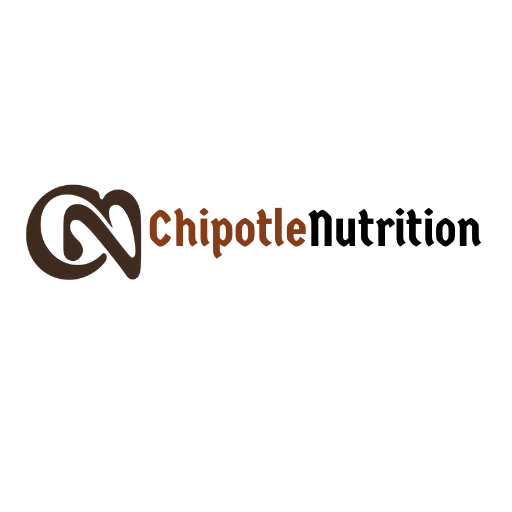Optimum Nutrition: Unlock Your Best Health with Proven Tips

Optimum nutrition is essential for everyone seeking to improve energy, maintain health, and achieve wellness goals. It is not merely indulging in the consumption of food, but it is about taking calculated decisions with regard to food and providing your body with the correct proportions of nutrition required by it to perform optimally. In today’s fast-paced world, understanding & adopting optimum nutrition can help you prevent chronic diseases, improve mental clarity, and sustain physical fitness.
Table of Contents
The relevance of optimum nutrition lies in how it directly impacts your quality of life. Diet helps during childhood and adult life, in the healthy operation of the brain and immune system, as well as in vitality. Moreover, it aids in weight loss, as well as enhanced athletic performance and healthy aging. Whether you’re an athlete, a busy professional, or someone seeking to eat healthier, foundational knowledge of optimum nutrition empowers you to make smarter decisions about your diet.
According to public health experts, optimum nutrition emphasizes eating a diverse range of colors in fruits and vegetables, whole grains, nuts, seeds, healthy fats like extra-virgin olive oil, and modest amounts of fish with limited meat and processed foods. Adopting this lifestyle would change your everyday experience and reduce the chances of developing conditions such as heart disease and diabetes.
Key Takeaways:
- Optimum nutrition means balanced intake of macronutrients and diverse whole foods.
- The key elements of replenishing the body with nutrients are the inclusion of healthy fats and colored plants.
- Individual nutrition programs that are prepared with professional insights maximize health conditions.
What Is Optimum Nutrition and Why Does It Matter?
Optimum nutrition refers to the ideal balance and variety of nutrients—carbohydrates, proteins, fats, vitamins, and minerals—that the body needs for peak functioning. It is not just about how much or less you consume, but eating food of moderate quality and quantity, and eating a variety of foods.
Nutritionists emphasize that optimum nutrition supports:
- Energy yield: Carbohydrates generate energy for the brain and muscles.
- Protein: Essential amino acids are needed in tissue repair and growth.
- Cellular health: Membranes and the production of hormones are sustained by healthy fats (such as omega-3s).
- Immune process: Vitamins and minerals enhance immunity against diseases.
Real-life example: Jane, an amateur runner, improved her stamina by shifting to optimum nutrition advice—replacing processed snacks with nuts and vegetables and integrating lean protein and olive oil into meals. This change made her have a faster pace of recovery and enhanced her performance in marathons.
The analysts observe that fat is not good or bad, but each type, including polyunsaturated, saturated, and trans fats, affects differently; omega 3 and 6 fatty acids are such in that they have to be obtained on a diet to derive benefit. It is this complex realization that justifies the significance of the proper food choices.
Note: Optimum nutrition should be individualized, especially for people with specific health conditions, under the care of a qualified healthcare practitioner.
Comparing Popular Nutrition Approaches: Which Supports Optimum Nutrition Best?
Nutrition trends abound, but not all align with the foundational principles of optimum nutrition. The following is a comparison between common diets in what way each one performs in containing a balanced, nutrient-dense approach.
| Nutrition Approach | Focus | Benefits | Limitations | Alignment with Optimum Nutrition |
| Mediterranean Diet | Fruits, vegetables, olive oil, fish | Heart health, anti-inflammatory effects | Moderate alcohol intake may concern some | Strong alignment: emphasis on variety and healthy fats |
| Keto Diet | High fat, very low carb | Weight loss, blood sugar management | May lack sufficient fiber and variety | Partial: lacks balance in macronutrients |
| Plant-Based Diet | Mostly or only plant foods | Lower chronic disease risk, high fiber | Potential protein and B12 deficiency if poorly planned | Strong alignment with diverse and balanced |
| Standard American Diet | Processed foods, high sugar | Convenience | High in unhealthy fats, sugars, and low micronutrients | Poor alignment: lacks variety and balance |
| Paleolithic Diet | Meat, nuts, fruits, and vegetables | Focus on whole foods | Restricts some food groups, may lack calcium | Partial: very balanced but restrictive |
Table Caption: Comparison of diets based on how well they promote optimum nutrition principles.
ALT text: Nutrition comparison table showing benefits and alignment with optimum nutrition.
This table clearly shows that diets emphasizing whole foods rich in diverse nutrients, like the Mediterranean and well-planned plant-based diets, best support the concept of optimum nutrition. Extreme low-calorie diets and diets that contain too much processed food tend to lack important nutrient categories and diversity.
How to Implement Optimum Nutrition in Daily Life: Step-by-Step Guide
Adopting optimum nutrition involves making deliberate choices in your food selection and meal planning. Here is the way to begin:
- Eat a rainbow: Strive to have a diversified choice of colorful fruit and vegetables each day so as to achieve a wide range of vitamins, minerals, and antioxidants.
- Whole Grains: Add quinoa, brown rice, oats, and whole wheat instead of refined grain to boost fiber and nutrition levels.
- Include Healthy Fats: Consume such sources of fats as extra-virgin olive oil, avocados, nuts, fatty fish on a regular basis. They provide vitally important omega-3 and omega-6 fatty acids.
- Macronutrients: Eat a balanced diet by having carbohydrates, proteins, and fats at meals so that you have energy and your metabolic system is balanced.
- Cut on Processed Foods: Consume less processed snacks, soda, and muffins, and excess amount of meat that contains unhealthy fats and chemicals.
- Drink Lots of Water: Water plays an essential role in the digestive system, the transportation of nutrients, as well as health. Drink at least 8-10 glasses in a day.
See: Michael, a 45-year-old man who worked in an office, who gradually changed his lunch habits of fast foods to more homemade meals containing lots of vegetables, legumes, and lean proteins. In months, he said that he had improved digestion, increased energy, and clearer skin.
P.S.: You should consult with a dietician when it comes to tailor-made nutrition to meet personal medical conditions and food restrictions.
The Future of Optimum Nutrition: Trends and Data Insights
With the development of the science of nutrition, we learn more and more about how to best design diets in terms of health. The contemporary tendencies are characterized by the fact that many consumers are ready to switch to individual nutrition supported by technologies and data. The future treatment using wearable equipment, continuous glucose monitors, and DNA-based diet plans are being developed.
| Trend | Description | Impact on Optimum Nutrition |
| Personalized Diets | Tailoring food based on genetics, metabolism, and preferences | Enhances effectiveness by meeting individual needs |
| Plant-Forward Eating | Emphasizing plants but not excluding animal products | Supports nutrient diversity and sustainability |
| Sustainable Nutrition | Focusing on foods that are good for both humans and the planet | Encourages responsible sourcing and food choices |
| Functional Foods | Foods fortified or designed to improve specific health aspects | Targets nutrition beyond basic sustenance |
Table Caption: Emerging trends shaping the future of optimum nutrition.
ALT text: Table highlighting nutrition trends and their impact on optimum nutrition.
Studies that have been made public by bodies such as the World Health Organization substantiate the high-plant, healthy-fat diets in an attempt to lower the disease load on societies across the globe and foster increased longevity. The fusion of technology and nutrition science promises a more precise, efficient path to optimum nutrition tailored to each individual’s unique needs.
Conclusion
Optimum nutrition is the cornerstone of a healthy, vibrant life. It aims at the intake of a healthy, well-balanced diet filled with fruits, vegetables, entire grains, healthy fats, and sufficient amounts of protein to nourish and restore the body. The science-based method emphasizes the aspect of quality and diversity over limiting diets or fad diets.
Among the main insights, one can speak about the importance of macronutrient balance and concentrating on nutritious foods such as fruits and vegetables of various colors and healthy fats. It may also improve results by personalizing nutrition with the help of an expert so that your diet would suit the specific needs of your body.
As of today, it is possible to introduce minor yet significant modifications: top up on vegetables, go with whole grains, and replace unhealthy fat with olive oil and nuts. Readers who wish to learn more can use the advice of a registered dietitian or develop a relationship with clear nutrition guides.
Take your first steps toward optimum nutrition now to experience improved energy, mental clarity, and long-term wellness.
To get more nutrition insights and expert tips, you may refer to our full guide: Taco Bell Nutrition: Unlock Healthy Choices with Expert Tips. Additionally, in-depth resources from authoritative institutions such as the Harvard T.H. Chan School of Public Health can also provide valuable dietary advice.
FAQs
Q1: What exactly is optimum nutrition?
A: Optimum nutrition means consuming a balanced variety of nutrients that support peak physical and mental health.
Q2: What can I do to have the best nutrition?
A: Concentrate on consuming a variety of whole foods such as fruits, vegetables, whole grains, healthy oils, as well as lean protein with a minimum of processed foods.
Q3: Are supplements necessary for optimum nutrition?
A: Whole foods should be used as the major source of nutrients, supplements can only be right when used in some instances, and supplements must be prescribed by a healthcare provider.
Q4: How does fat intake fit into optimum nutrition?
A: Healthy fats such as omega-3 and omega-6 are vital and should be taken in the diet; trans fat should be avoided, as well as eating limited lenient fats.
Q5: Can optimum nutrition help with weight management?
A: Yes, it aids healthy metabolism and energy balancing, the secret of sustainable management of your weight.
Latest Posts
You Might Also Like

Chipotle Nutrition – Your go-to guide for calories, healthy choices, and balanced meals at Chipotle.
TOP NEWS
© Copyright 2026 Chipotle Nutrition. All rights reserved














No Comments